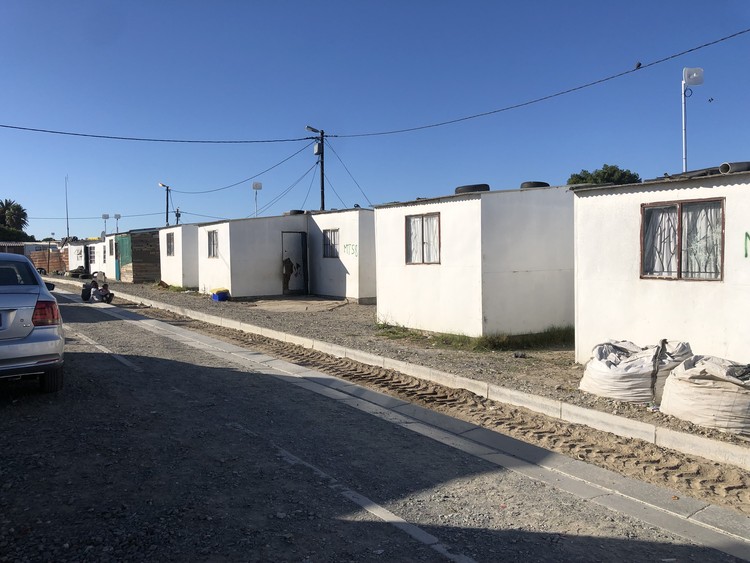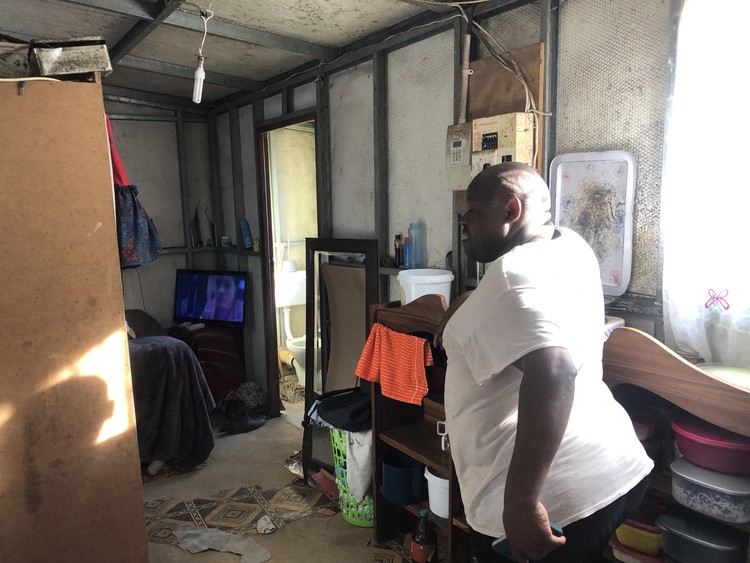Cape Town families say City has ‘abandoned’ them
Municipality has no immediate plans to move families living at the Masonwabe temporary relocation area in Gugulethu
In 2013, the City of Cape Town relocated families to this temporary relocation area (TRA) in Gugulethu. Years later, the families are still there and say they’ve been forgotten. Photos: Mary-Anne Gontsana
- Families were moved from the Masonwabe Hostel in Gugulethu in 2013 as a temporary measure while the City of Cape Town fixed the dilapidated building they were living in.
- The building was demolished, and the site remains vacant. Now the families want to know when they will be moved to permanent housing.
- But the City now says it has no immediate plans to move the families from their temporary relocation area.
Families who were moved to a temporary relocation area (TRA) in Gugulethu, Cape Town 12 years ago say they’ve been abandoned there, and fear that it has become their permanent home.
They were relocated to the TRA by the City of Cape Town because the dilapidated Masonwabe Hostel they were living in was demolished for being “dangerous and uninhabitable,” according to the City.
Situated behind the Gugulethu police station, it’s hard to miss the rows of white Masonwabe TRA structures within a fenced off area. When people were first relocated, about 80 families were housed at the TRA. Now there are about 136 structures, the City recently confirmed.
Andile Ngcwangu had moved there from the hostel. Inside, his home looks incomplete. There are exposed steel frames covered with what looks like a sheet for insulation and zinc. There’s a small bathroom inside with a toilet and sink.
Pointing out holes on the side of his home, Ngcwangu explains how he dodged bullets in February when rival gangs were shooting near the TRA.
He complained that the structures aren’t being maintained, forcing them to live in difficult conditions. “When it’s cold, the structures are cold inside and the same when it is hot, it becomes unbearable. The structures also have holes where mice come in,” he said.
Masonwabe community chairperson, Nolusindiso Leputhing, said they want the City to fulfil its promise that the TRAs would not be their permanent home. “It has been 12 years now and we are still here … Instead, the City is constructing roads here. Why are they making roads if we are only supposed to be here temporarily? It’s like they are now trying to fix this place because they know that we won’t be moving. There’s no communication,” said Leputhing.
Andile Ngcwangu had moved into his TRA structure from the Masonwabe hostel in 2013. Most residents say they were told these ‘incomplete’ units would only be for a short period.
She said some families grew since moving there in 2013 and no longer could fit into the small structures. “Some have resorted to extending their structures to make more space.”
“We need to know what is happening. What will happen to the old hostel site? Will they build houses for us there or not?” asked Leputhing.
When GroundUp reported on the Masonwabe hostel in 2013, Bruce Oom, former spokesman for the former Western Cape MEC for Human Settlements, Bonginkosi Madikizela said, “The structures are built so people would have somewhere to live while repairs are being carried out on the Masonwabe hostels in Gugulethu. The affected families are expected to move back to the hostel site when all restoration work is completed, and the houses most likely taken down. The houses currently are only for the residents of the hostels.”
But this month, the City told GroundUp that the “relocation of the residents is not in the City’s immediate plans”.
“TRAs are also known as incremental development areas and are parcels of land that have been developed for families in need of emergency housing, for as long as their emergency lasts,” said the City.
Asked what the City’s plan was for the now empty site of the Masonwabe hostel and whether houses would be built there, the City only responded saying it would “provide an update in due course.”
Support independent journalism
Donate using Payfast

Don't miss out on the latest news
We respect your privacy, and promise we won't spam you.
Next: Western Cape promises progress on inner-city housing projects
Previous: Thousands march across the country to demand justice for Cwecwe
© 2025 GroundUp. This article is licensed under a Creative Commons Attribution-NoDerivatives 4.0 International License.
You may republish this article, so long as you credit the authors and GroundUp, and do not change the text. Please include a link back to the original article.
We put an invisible pixel in the article so that we can count traffic to republishers. All analytics tools are solely on our servers. We do not give our logs to any third party. Logs are deleted after two weeks. We do not use any IP address identifying information except to count regional traffic. We are solely interested in counting hits, not tracking users. If you republish, please do not delete the invisible pixel.


